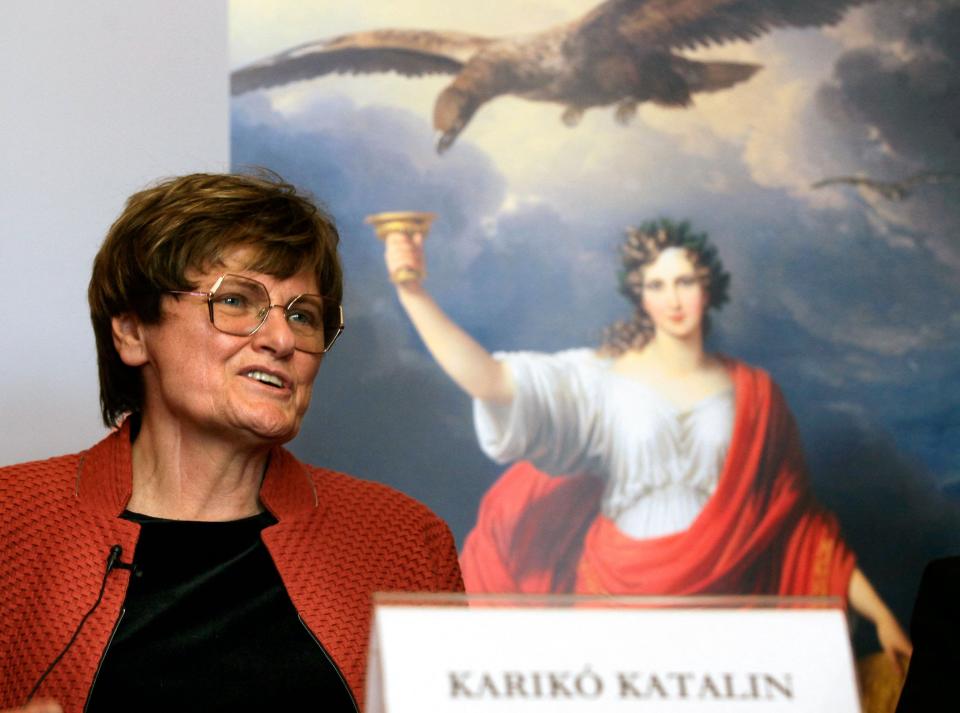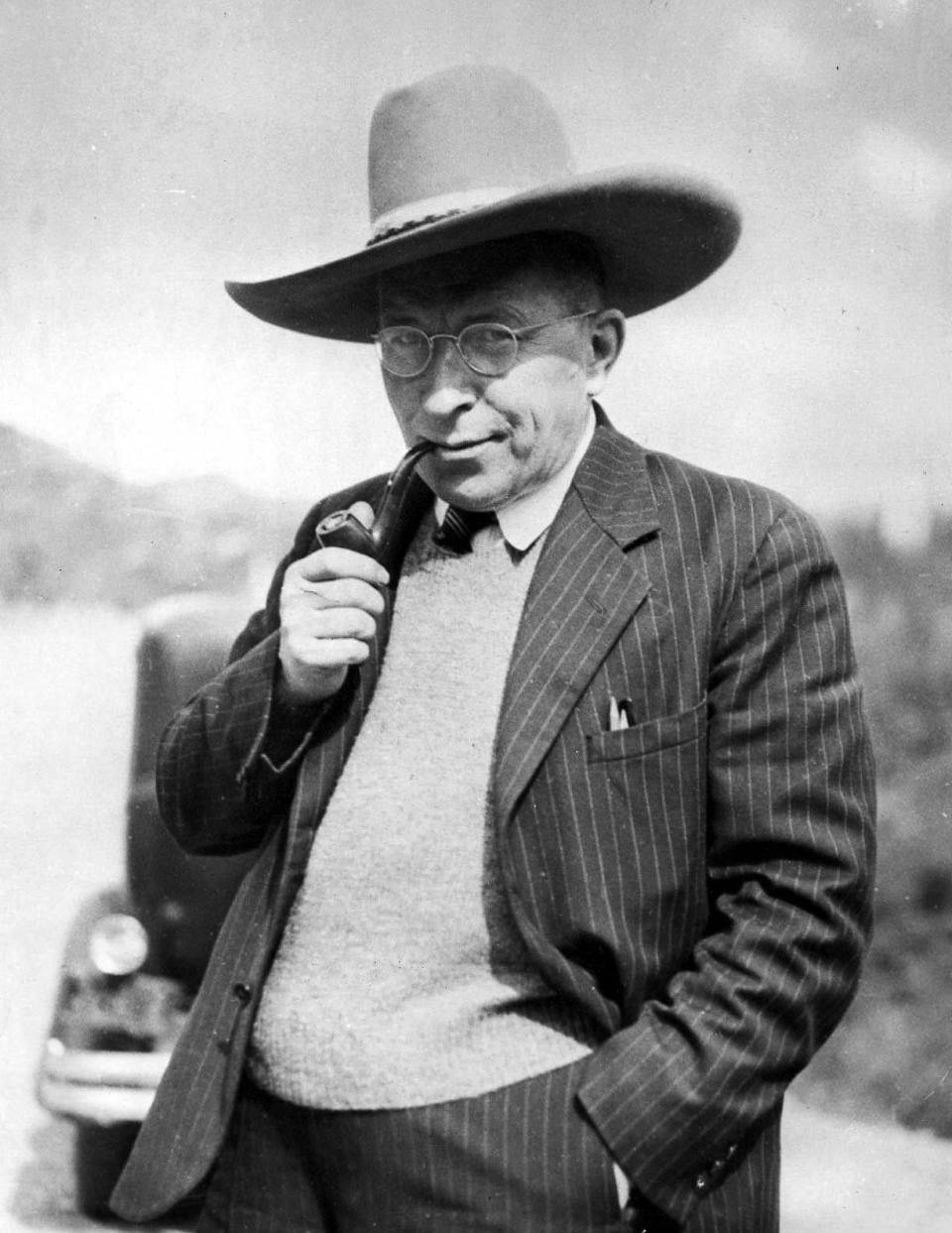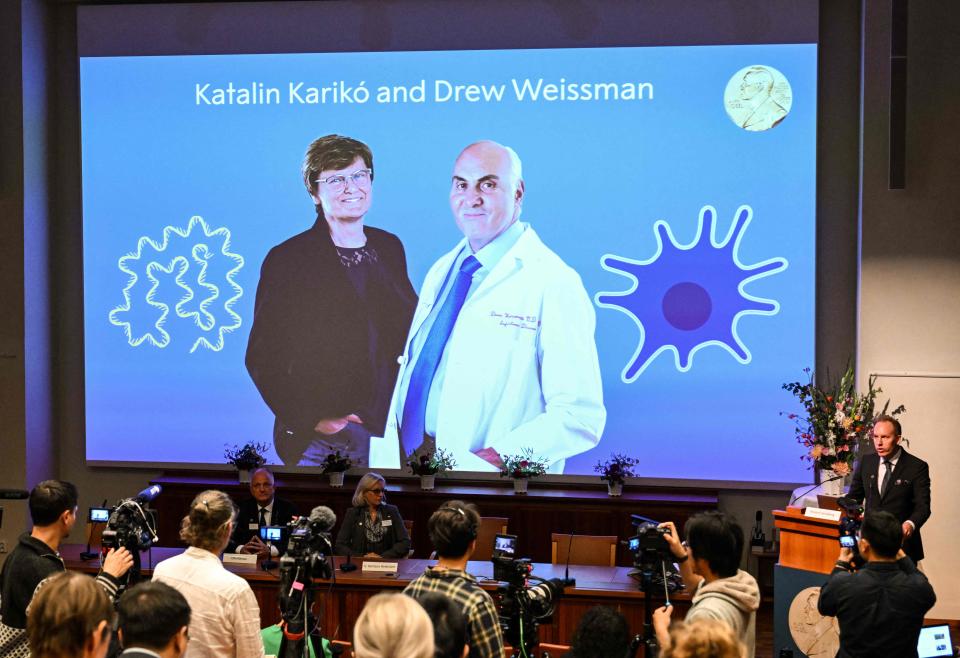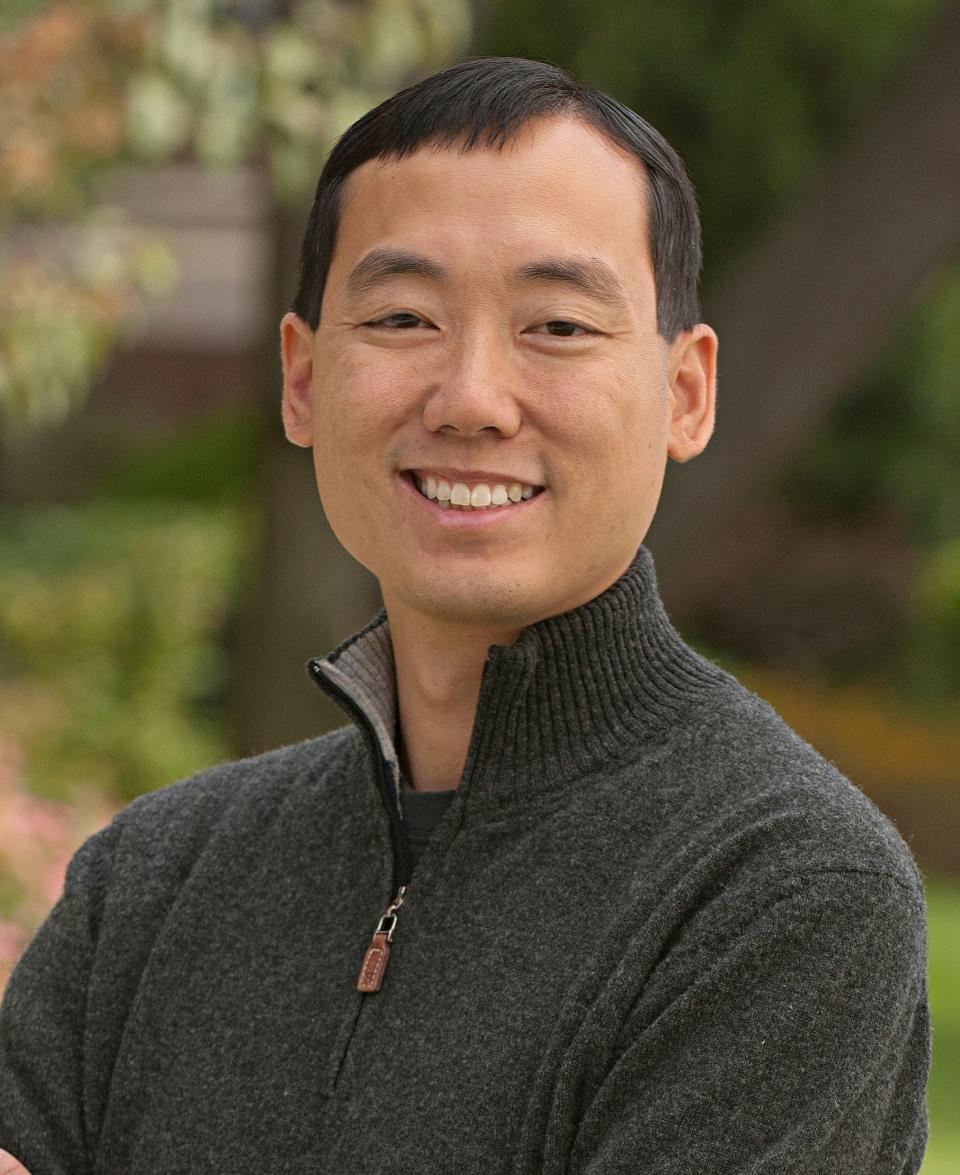2023 Nobel Prize winner was dismissed for decades. But her mRNA work led to COVID vaccine.
- Oops!Something went wrong.Please try again later.
- Oops!Something went wrong.Please try again later.
- Oops!Something went wrong.Please try again later.
On Sunday, professor Katalin Karikó will receive a Nobel Prize for her research on mRNA that led to the rapid development of COVID-19 vaccines and saved millions of lives. Though most Nobel laureates remain little known, Karikó’s story is famous for the way she and her work were dismissed by colleagues and her university for decades.
Today her success is a symbol of how bad academic medicine can be at judging scientists’ potential.
Ironically, Karikó’s story bears similarity to that of another Nobel winner, Dr. Frederick Banting, who discovered insulin and received his prize 100 years ago – after he, too, was belittled as an outsider who did not fit the mold of an elite scientist.
Nobel Prize judges more than 'faculty quality'
In 1985, Karikó arrived at Temple University as a Hungarian biochemist immigrant with limited English speaking and writing ability.
She was passionate about mRNA, the molecule that conveys instructions within cells to produce proteins, but conventional wisdom held that mRNA was too ephemeral to be of much use.

In 1920, Banting was an unsuccessful Canadian surgeon. One night he had an epiphany – a way to isolate the mysterious product of the pancreas’ islets of Langerhans cells, suspected to play a role in diabetes.
Banting had never performed research, but he took his idea to University of Toronto professor John Macleod. Banting was inarticulate and did a terrible job explaining his hypothesis. Though Macleod granted him a small research space in his lab, he considered Banting a neophyte with slim chance of success.
Occupying the bottom rung in the hierarchical world of academic science, Banting and Karikó suffered many indignities. Even after Banting discovered insulin, Macleod remained pessimistic and initially gave only grudging support. At the University of Pennsylvania, Karikó spent years working long hours and moving from lab to lab, suffering the humiliation of a demotion in 1995. A decade ago, she was unceremoniously kicked out of her lab.
America needs immigrants: New Census data show we need to address the very real economic challenges caused by slowing population growth
Neither Karikó nor Banting was perfect.
Karikó could be blunt and tactless to those who did not meet her exacting standards. Her imperfect English undoubtedly made it easier for colleagues to dismiss her or reject her grant applications. She lacked the social skills that might have helped her navigate departmental politics or advance her career.
Banting was also a poor communicator with flawed interpersonal skills. He was gripped by paranoia that his co-investigators were claiming undue credit for his discovery and even engaged in a physical altercation with one – James Collip – whose efforts to purify insulin proved essential. Student collaborator Charles Best recalled: “Collip was fortunate not to be seriously hurt. ... I can remember restraining Banting with all the force at my command.”
In the end, Banting had to share with Macleod the Nobel Prize in 1923.

Despite their shortcomings, Banting and Karikó encountered resistance that had more to do with their personalities and how they were viewed than the quality of their ideas.
In her recently published memoir, "Breaking Through: My Life in Science," Karikó recounted that one supervisor, whom she believed deemed her too assertive and pushy, requested she stop attending grant meetings. She was also advised to stop speaking Hungarian. Concerning her demotion, a reason given was that she was not “faculty quality.”
In 1997, Karikó found a close collaborator in immunologist Drew Weissman, and in 2005 they published their critical discoveries on mRNA.
This Sunday, Karikó and Weissman will receive the Nobel for their contribution to "the unprecedented rate of vaccine development during one of the greatest threats to human health in modern times."

Science doesn't care about personality or prestige
Banting and Karikó succeeded despite the challenges they faced. But their stories inspire this question: How many other outsiders have great ideas but give up because the establishment dismisses them?
As we search for promising researchers of the future, we should cast a wide net, fund diverse projects and avidly consider scientists who do not fit the expected mold. Brilliant investigators might not be personable or warm. They might be nonconforming loners with few friends.
But science does not care if discoverers are affable and socially adept. It does not care about race or affluence, the prestige of one’s college or how well one speaks English. It only cares about truth.
My scientific journey: Latino STEM leaders had major impact in science. Why aren't we taught about them?
At the same time, the onus is not only on the establishment. If the COVID-19 pandemic taught us anything, it’s that scientists must become skilled communicators. In health crises, the public depends on experts to explain threats and solutions cogently. Colleges should train scientists to write and present well. Foreign scientists must devote significant time to mastering English.
Karikó's and Banting’s difficulties stemmed not from flawed science, but most often from flawed communication. In Banting’s case this made him difficult to work with. In Karikó’s it almost certainly fed negative, perhaps unconscious, bias that lowered others’ regard for her ideas.
Opinion alerts: Get columns from your favorite columnists + expert analysis on top issues, delivered straight to your device through the USA TODAY app. Don't have the app? Download it for free from your app store.
It might take extra effort to recognize the value of irascible investigators or those whose skills are masked by language or cultural barriers. This fact undoubtedly frustrates snubbed researchers who only wish to be judged by the merits of their research.
The Bantings and Karikós of the world might be few, but we will never know or benefit from a breakthrough not made by one of their ilk. Almost always, such individuals display an indefatigable work ethic that mirrors their passion and dedication to wrest from nature its secrets.
In science, a record of results should always count most of all.

Andrew Lam, MD, is a practicing retina surgeon and an assistant professor at the University of Massachusetts Medical School. He is the author of "The Masters of Medicine: Our Greatest Triumphs in the Race to Cure Humanity’s Deadliest Diseases" and "Saving Sight: An Eye Surgeon’s Look at Life Behind the Mask and the Heroes Who Changed the Way We See."
You can read diverse opinions from our Board of Contributors and other writers on the Opinion front page, on Twitter @usatodayopinion and in our daily Opinion newsletter.
This article originally appeared on USA TODAY: Nobel winner's mRNA research was ignored. Without it, no COVID vaccine

